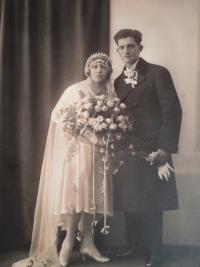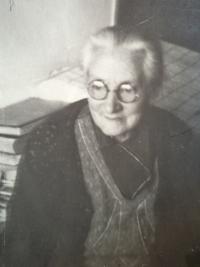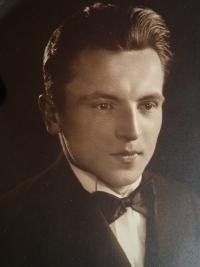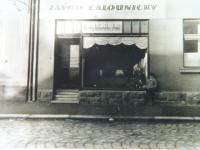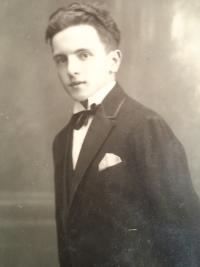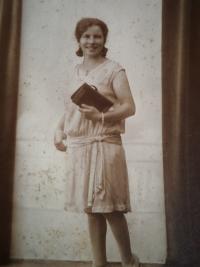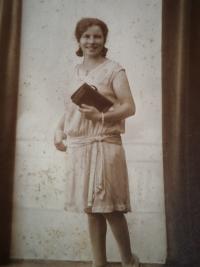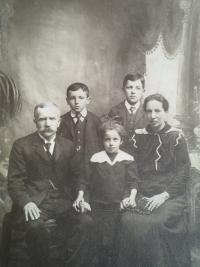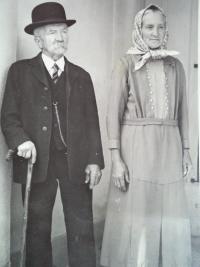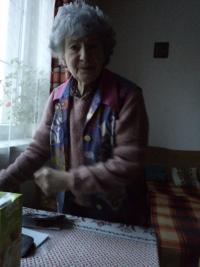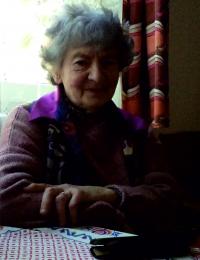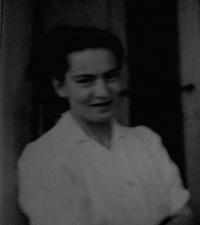A drunken comrade was bashing on our door, saying he was here to shoot our grandma

Stáhnout obrázek
Marie Tesařová was born in 1931, the only child of a father in the third phase of tuberculosis who intentionally infected her mother. Her father died a few months after she was born, her mother when she was three years old. The infant Marie was taken up by her uncle, her mother‘s brother Josef Habiger, who was yet a bachelor at the time. His care saved her life. From her fourth year onwards she was cared for by her grandparents from her mother‘s side, who lived in the countryside near Česká Třebová. Marie experienced the wartime years as a growing girl; the end of the war brought peril to her grandmother, who was almost murdered by one Czech „patriot“ for her German roots. In the 1950s the communist police arrested her uncle and benefactor Josef Habiger and, without due process, detained him in prisons at Leopoldov, Jáchymov, and Příbram, from whence he was released with heavy injuries from a collapsed mine shaft. Marie Tesařová married and brought up four children with her husband.
